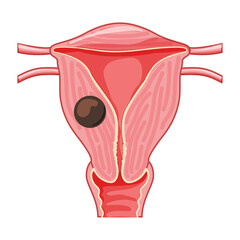INTRODUCTION
Health is wealth—a simple yet profound truth. One sickness can drain a
lifetime of savings, leaving individuals and families in distress. While modern
medicine has made remarkable strides in diagnosing and treating diseases, many
health conditions continue to defy medical solutions, pushing us to explore
alternative approaches.
Natural Remedies For Dyspareunia (Painful Intercourse)
Dyspareunia, or pain during sexual intercourse, is a distressing and
often underreported issue that affects people across all ages and
backgrounds. The causes are multifactorial, ranging from physical
issues such as vaginal dryness, infections, endometriosis, or hormonal
changes, to psychological factors like anxiety, trauma, and relationship
problems. While definitive treatment depends on identifying the
underlying cause, several natural remedies and lifestyle adjustments
may provide relief, especially for those experiencing mild to moderate
symptoms. Here is a structured guide to evidence-informed natural
approaches that can help alleviate discomfort associated with
dyspareunia.
1. Water-Based Lubricants
How they work: Water-based lubricants reduce friction during
intercourse, minimizing the likelihood of pain, especially in cases of
vaginal dryness or atrophy.
Usage: Apply a generous amount to the vaginal area and/or partner
before intercourse. These are safe with condoms and widely available.
Note: Avoid lubricants with added fragrances or warming agents, as
they may cause irritation.
2. Aloe Vera Gel
How it works: Aloe vera contains anti-inflammatory and moisturizing
properties, making it suitable for soothing irritated or dry tissues.
Preparation: Use pure, organic aloe vera gel (either freshly extracted
or store-bought, free from preservatives or alcohol).
Usage: Apply a small amount externally and internally 10–15 minutes
before intercourse.
Caution: Perform a patch test first to rule out allergic reactions.
3. Coconut Oil
How it works: Coconut oil acts as a natural moisturizer and lubricant.
It may also offer mild antimicrobial effects.
Preparation: Use only unrefined, virgin coconut oil.
Usage: Apply a small amount to the vaginal and vulvar areas prior to
intercourse.
Compatibility: Safe for use with most sex toys but not with latex
condoms.
4. Calendula Oil
How it works: Calendula is well-known for its skin-soothing and anti-
inflammatory properties. It helps reduce irritation, particularly from
contact dermatitis or minor abrasions.
Preparation: Use a ready-made calendula oil or make your own by
steeping dried calendula flowers in olive oil for 2–4 weeks.
Usage: Apply sparingly to the vaginal opening before sexual activity
or as part of regular vulvar care.
5. Yogurt (Probiotic)
How it works: Probiotic strains in yogurt help maintain a healthy
vaginal microbiome, preventing infections like yeast or bacterial
vaginosis that may contribute to dyspareunia.
Usage: Consume one cup of unsweetened, live-culture yogurt daily.
For recurrent infections, some women use it topically or intravaginally
(consult your doctor first).
Note: Avoid flavored or sweetened varieties, which can disrupt vaginal
flora.
6. Pelvic Floor Exercises (Kegels)
How they work: Strengthening pelvic floor muscles can enhance
blood flow, improve muscle tone, and reduce pain during intercourse
caused by muscle tension or weakness.
How to perform: Contract the muscles used to stop urination, hold for 5
seconds, then release. Aim for 3 sets of 10 repetitions daily.
Benefit: These exercises also improve bladder control and overall
pelvic health.
7. Warm Baths
How they work: Warm baths help relax pelvic muscles and ease
discomfort caused by tightness or stress-related tension.
Usage: Soak in warm (not hot) water for 15–20 minutes before sexual
activity. Consider adding a few drops of lavender oil for relaxation.
Note: Avoid bubble baths or scented soaps that could irritate sensitive
genital tissue.
8. Mind-Body Techniques
How they work: Anxiety and stress can increase pain perception.
Mindfulness, deep breathing, and progressive muscle relaxation can
lower these psychological triggers.
Usage: Practice daily for 10–15 minutes or before sexual activity. Apps
like Headspace or Calm offer guided sessions.
Benefit: Over time, these practices may enhance body awareness and
comfort with physical intimacy.
9. Avoid Irritants
How it works: Harsh soaps, douches, or scented hygiene products can
disrupt the vaginal pH or cause allergic reactions.
Usage: Use only mild, unscented, pH-balanced products on the genital
area. Avoid internal cleansing unless prescribed.
Tip: Choose cotton underwear and avoid prolonged use of tight-fitting
clothing.
10. Communication and Emotional Support
How it works: Emotional tension and lack of communication between
partners can exacerbate pain. Honest dialogue reduces anxiety and
improves mutual understanding.
Usage: Talk openly with your partner about boundaries, comfort levels,
and any pain experienced.
Optional: Consider therapy (individual or couples-based) with a
therapist trained in sexual health if emotional or relational issues are
contributing.
Key Consideration
Natural remedies can support comfort and intimacy, but they are not a
substitute for medical care. Persistent dyspareunia could signal a more
serious condition such as lichen sclerosus, endometriosis, vulvodynia,
or hormonal imbalance, and should be assessed by a gynecologist or
pelvic pain specialist.



